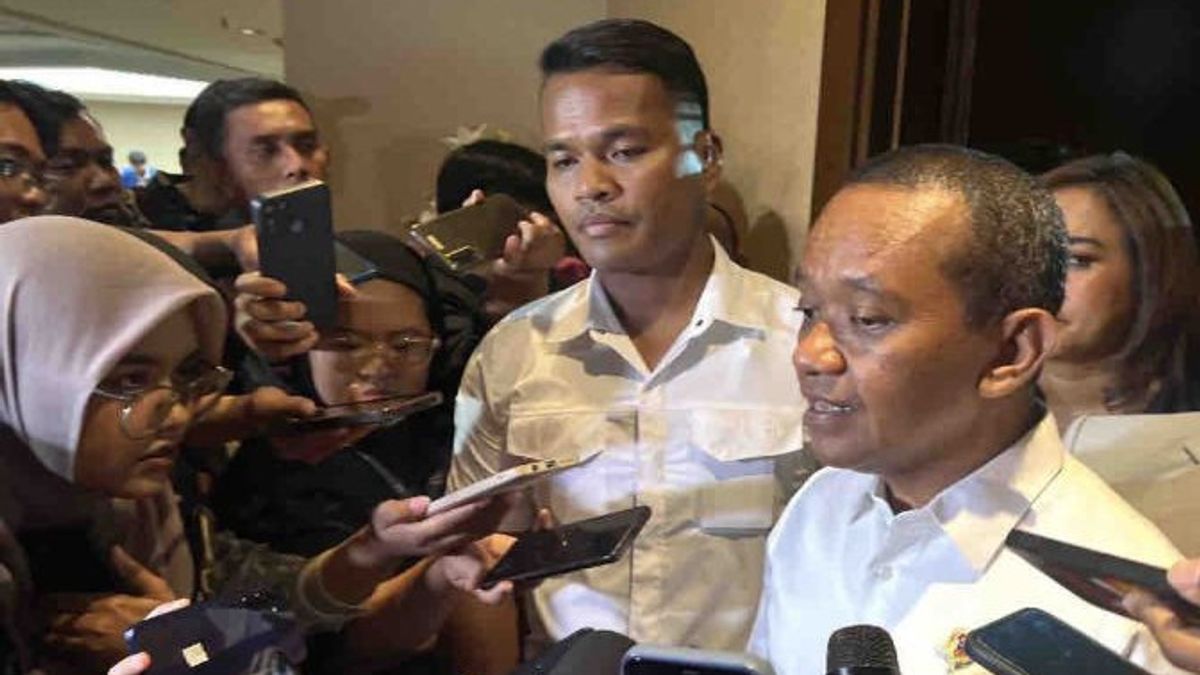JAKARTA - Minister of Energy and Mineral Resources (ESDM) Bahlil Lahadalia emphasized that increasing oil lifting is an important step to achieving national energy sovereignty.
Bahlil said this was very crucial because it would support economic growth and reduce Indonesia's dependence on energy imports.
"So if we are unable to overcome lifting, then never dream that we will advance to energy sovereignty," Bahlil said as quoted by ANTARA, Monday, October 14.
He revealed that without the ability to overcome the problem of oil lifting, Indonesia would not be able to advance towards energy sovereignty.
Moreover, energy sovereignty is the program of President-elect Prabowo Subianto.
Bahlil explained that there are concrete steps that must be taken to increase oil lifting.
First, it is necessary to optimize existing oil wells, both active and idle (idle), to increase production.
He reminded that if there was no concrete action, oil lifting is expected to drop by around 7-15 percent per year.
Therefore, he has made the decision to increase oil lifting from 600 thousand barrels per day.
Of this figure, Pertamina is expected to supply around 400,000 barrels, which is 65 percent of total lifting, while the remaining 25 percent come from ExxonMobil Cepu.
Bahlil invited ExxonMobil to increase the lifting target from 100,000 to 150,000 barrels per day with the help of technology intervention.
"So I asked Exxon, what makes you have a target of 100,000 to 150,000 barrels per day, so he can make a jump. It turns out that he has technological intervention, one of the technologies used is EOR," said Bahlil.
The technology in question is the Enhance Oil Recovery (EOR), which is currently being developed by Pertamina, especially in the Rokan area, Sumatra.
Bahlil emphasized the importance of this step to achieve the desired lifting target.
In addition, Bahlil noted that there are around 44,900 oil wells in Indonesia, with 16,600 of them in idle conditions. Of these, about 5,000 wells can be optimized to increase national oil production.
He also reminded that in 1996 and 1997, Indonesia was able to produce 1,000,600 barrels of oil per day, which contributed significantly to state revenues because it was able to export up to 1 million barrels.
However, after the reform, oil production continues to decline.
Currently, national oil production is only 600,000 barrels per day, while consumption reaches 1,000,600 barrels per day.
This causes Indonesia to import around 900 thousand to 1 million barrels of oil per day.
SEE ALSO:
Bahlil emphasized that the changes that occur from exports to imports of the same amount are serious problems that must be overcome.
Therefore, concrete steps in increasing oil lifting are very important to achieve Indonesia's energy sovereignty.
"So what happened in 96 and 97, we export, now we turn around we import the same amount. This is roughly the problem of our country," said Bahlil.
The English, Chinese, Japanese, Arabic, and French versions are automatically generated by the AI. So there may still be inaccuracies in translating, please always see Indonesian as our main language. (system supported by DigitalSiber.id)
















